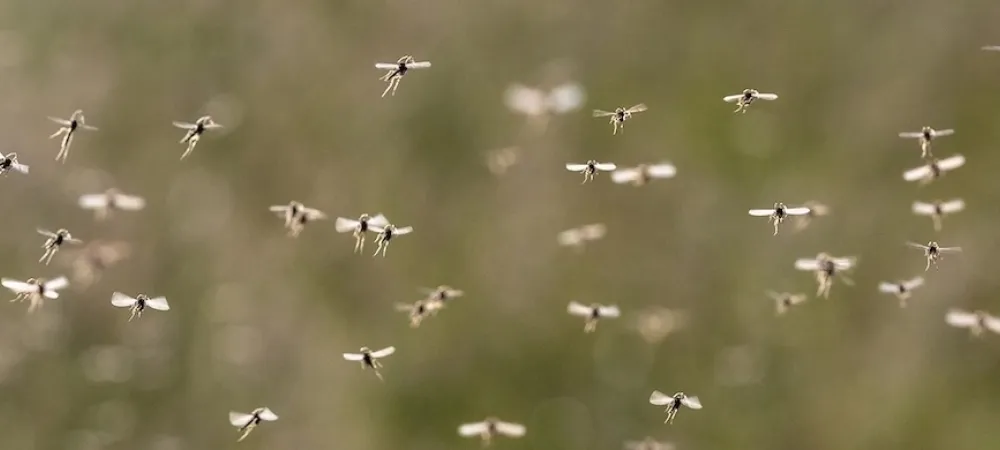
What LA County Homeowners Need to Know for West Nile in 2025
Mosquito activity in Los Angeles County typically peaks in the warmer months, and with it comes a higher risk of West Nile virus transmission. In 2025, public health officials are urging homeowners to stay alert, eliminate standing water, and protect themselves with proven prevention measures. Understanding when and where mosquitoes are most active is the first step in reducing exposure and lowering the risk of infection.
What Is West Nile Virus?
West Nile virus (WNV) is the most common mosquito-borne illness in the United States. It spreads primarily through the bite of infected Culex mosquitoes, which thrive in LA County’s warm climate and urban environments. While most infected people experience mild or no symptoms, severe cases can lead to neurological complications such as encephalitis or meningitis. According to the California Department of Public Health, dozens of human cases are reported in the state each year, with LA County consistently ranking among the highest-risk areas.
Key Benefits of Staying Informed About Mosquito Alerts
- Reduce your risk of illness. Knowing when mosquito activity is high helps homeowners take timely precautions, from applying repellent to avoiding outdoor activity at dusk.
- Protect your family and pets. Preventative measures safeguard children, seniors, and even animals that may also be bitten.
- Prevent neighborhood outbreaks. Eliminating standing water on your property reduces breeding sites and limits the spread of West Nile virus across the community.
Types of Mosquito Risks in LA County
Type 1: Culex Mosquitoes
Description: The primary carriers of West Nile virus. They breed in stagnant water and bite most actively at dawn and dusk.
Best for: Targeted control efforts, since eliminating their habitats directly reduces the risk of WNV.
Pros and Cons: Control is possible through public health spraying and homeowner prevention, but Culex mosquitoes adapt well to urban environments, making them difficult to eliminate completely.
Type 2: Aedes Mosquitoes
Description: Aggressive daytime biters that can spread other illnesses like dengue and Zika, though those are less common in California.
Best for: Understanding the broader mosquito risks beyond WNV.
Pros and Cons: While not the main driver of West Nile virus, their presence increases overall nuisance and health concerns.
How to Protect Yourself From Mosquitoes in 2025
- Step 1: Eliminate standing water. Dump or drain containers like buckets, birdbaths, and clogged gutters at least once a week.
- Step 2: Use repellents. Apply EPA-registered products containing DEET, picaridin, or oil of lemon eucalyptus when outdoors.
- Step 3: Maintain barriers. Repair window and door screens to keep mosquitoes from entering the home.
- Step 4: Stay informed. Check local mosquito control district alerts for West Nile virus activity in your neighborhood.
LA County-Specific Considerations
- Regional factor: The Los Angeles County Vector Control District issues regular mosquito and virus activity reports that residents should monitor closely.
- Seasonal consideration: Peak risk generally occurs from late spring through early fall, when warm temperatures accelerate mosquito breeding cycles.
- Local standard: LA County may conduct aerial or ground spraying in high-risk areas — homeowners should stay aware of announcements and follow safety guidance.
Common Mistakes to Avoid
- Relying only on sprays. Personal repellents help, but without eliminating breeding sites, mosquitoes will return.
- Ignoring daytime risks. While Culex bite at dusk and dawn, Aedes species bite during the day, so protection is needed at all hours.
- Overlooking small water sources. Even bottle caps, plant saucers, or pet bowls can host mosquito larvae if not regularly emptied.
Professional Mosquito Control in Los Angeles County
Preventing mosquito-borne illnesses requires more than just repellent. For homeowners dealing with persistent mosquito activity, professional treatments can help reduce breeding populations around the property. The experts at Fenn Termite & Pest Control, Inc. provide targeted mosquito control solutions designed for LA County’s conditions, helping protect families during peak mosquito season. Contact Fenn Termite & Pest Control, Inc. to learn more about year-round mosquito protection.
Last updated: 02/08/2026
Frequently Asked Questions
How can I stay updated on local mosquito activity?
Residents can subscribe to alerts from the Greater Los Angeles County Vector Control District or check their website for weekly updates on mosquito counts and virus detections.
What are the symptoms of West Nile virus?
Most people have no symptoms, but some may experience fever, headache, fatigue, or body aches. Severe cases can lead to neurological illness requiring medical attention.
When is mosquito season in LA County?
Mosquito season typically runs from late spring through early fall, with July through September being the highest risk period for West Nile virus.